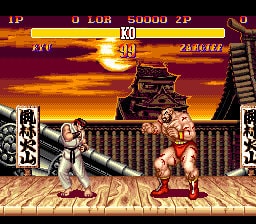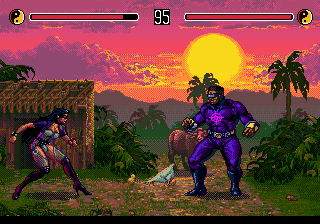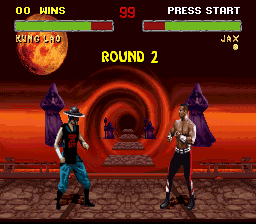This is shocking to learn, as these are often seen as the halcyon days.
It makes sense when you consider that most of the industry biggest games were pretty much derivatives of the same games that people were already playing for years, and there weren't many disrupters to make up for that. Not to mention rising prices, a lot of shovelware, while cartridge prices were still high. It also explains the lowering software sales in certain countries like the US over where they were going before. Many best selling game lists for SNES and Genesis are worldwide when you look at the numbers, so you have to consider that despite the Sonic vs. Mario and Sega attitude stuff, and the perception kids at the time had growing up with those consoles, the industry was actually on a downswing.
NES created a bubble that was barely holding things up late 80's through Nintendo's policies, and as soon as that freed up and several developers ran elsewhere not wanting to take it anymore, you had competition explode, but you were still having very similar games produced on the console-side of the industry with better graphics. There were some big games in other genres that sold well but many earlier best selling games on Genesis and SNES had sequels or follow-ups that didn't drive software or hardware profits the way they should have.
When Nintendo started porting over late hit arcade titles, and tried to sell 3D hard on the SNES, SNES sales picked back up and helped the console last longer in the market, while Sega was already having problems selling Genesis consoles and several of their attempts to do the same as SNES were either killed by themselves early before any results manifested, or they wouldn't continue selling after the launch window. Which led to a $61 million loss just in the US of unsold inventory (as posted in the Sega 1996 thread).
I couldn't find the archives of the WW drop form iirc $11 billion to $5.3 billon or some other decimal and the google newspaper link is dead, I did however find some articles about the
US market dropping during that time.
Industry was at
$6.5 billion in US sometime in 1993 (they used numbers reported a few months earlier in the year)
https://fortune.com/1993/12/27/videogames-serious-fun/
They’re playing a harmless little videogame, the felicitously named Lethal Enforcers, a $70 gem that runs on your kids’ Sega CD system. While this may not be your idea of age-appropriate fun, it has corporate America all excited. Why? Because boys like these form the heart of the videogame industry (so far, girls aren’t a factor). And videogames are a $6.5-billion-a-year U.S. business—bigger than the movie box office take—that’s on the cutting edge of both technology and investment in the so-called electronic information highway.
Dropped to $2.5 billion end of 1995, and it actually dropped to ~$2 billon early 1996 but I can't find the old NPD archives anymore (they were more relevant on gaming reporting at that point) which I assume is intentional by NPD themselves, so you're looking at a
$4-4.5 billion loss in either case quickly, which numerically, is the biggest drop in console gaming history still so far (PC was separate then).
By mid-1997 gaming industry was at
$7 billion in less than two years.
https://www.proquest.com/openview/6e486abf952d013cdb810e91b6dbfdd3/1?pq-origsite=gscholar&cbl=2368
Video games represent a $7 billion business in the United States, exceeding the $5 billion annual box office sales of the Hollywood movie industry.
It really goes to show that console gen was filled with competition and less panic about an imploding monopoly which analysts were concerned about at the end of the 80's and start of the 90's, but it was replaced with a declining interest, less consumers spending, and growth of computer entertainment software (which is where the old 'consoles may be dead soon' fearmongering myth came from back in the 90's).
However, people didn't notice this because of the hyperbolic press and mag coverage, the heavy spending on marketing by software and console companies, the focus on socializing and merchandising, and so on. So like with many gamers in previous downswings, despite this one numerically being the worst in the industries history, many people didn't notice unless they were older who were tracking the industry or read the right sources, or if you were financially involved in the industry through a company, as an investor, or who was involved in the toy-industry. Some stores cutting inventory or slowing down game releases could give some signals in some parts of the country (or world) too, but that was minor.
This slump happened outside the US too, though not as large since there wasn't as many consoles and games being sold to have such a large decline. Europe didn't get hurt too bad because they still had an active microcomputer market with a rising Genesis console, though video game consoles were still not that big there yet, by the time those computers declined, and PC took over, the PSX/Sat was out followed by the N64 shortly after, at the same time as PC gaming rose in Europe (outside the UK) replacing those micros. So the dip wasn't that bad.
Japan started out slow because of the high costs of the new consoles at first, but picked up again once the prices came down, with cheaper CD games alone compared to cartridge consoles being one of the major drivers. Along with companies taking advantage of arcade hype with early ports of popular games since in Japan the PSX/SAT came out a year earlier than other regions. But the worldwide gaming market took a pummeling, and the US faced the worst of it. $4-4.5 billion drop in a what was a peak $6.5 billion industry (US) as quick as it occurred was not a small thing despite the distractions.
Luckily the 3D consoles from the discounted 3DO, Sony's $299, which later forced Sega to do the same, and the N64's $250 just as the US market was moving toward primarily 3D game interest across consumers (which ended up saving the N64 in general), along with many console moving and revenue generating hit games from 1996-1997, got the industry back on track.
Otherwise, all those PC = Consoles dead claims may have had some merit back then, and consoles may have been a niche. Until they started being walled garden PC's,
which is what ended up happening anyway, go figure.
This.
Those days people were more interested in whats popular, not units sold worldwide and in US/Europe it was Sega.
Also Saturn went on to outsell the N64 In Japan.
I love both consoles
Sega lost the US later. They couldn't figure out how to keep the interest going for the Genesis despite them thinking they were (hence the unsold inventory) but they did impress me with how they went from a struggling Master System to being ahead of Nintendo without half the software sales for as long as they did. Sonic really helped out that consoles out there, though when it started moving less consoles with the sequels Sega couldn't find something to replace it with, or third parties to replace it with.
Sega should have tried to buy Midway as an exclusive third party, that's probably the only way they could have gotten out of it. Compared to Nintendo with SNES, Sega made very few exclusive deals with third parties even when they had the money too during their success. what they did use the money for were not big sellers, or for marketing deals but not timed or full exclusivity which I think was their biggest mistake











